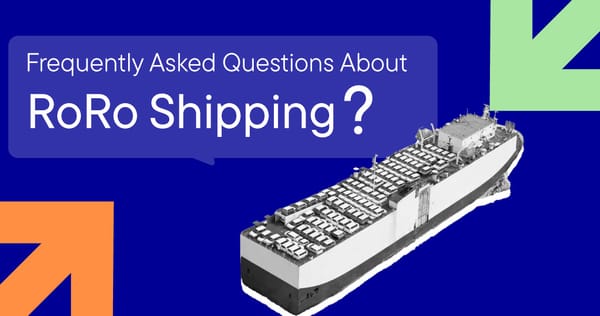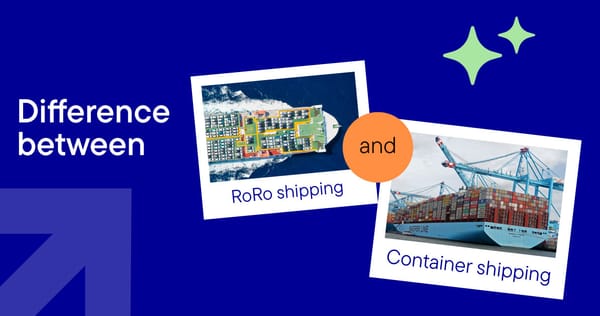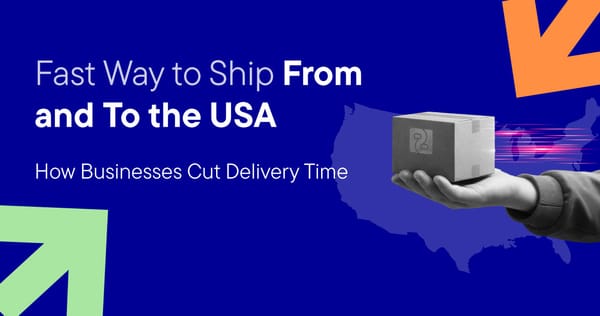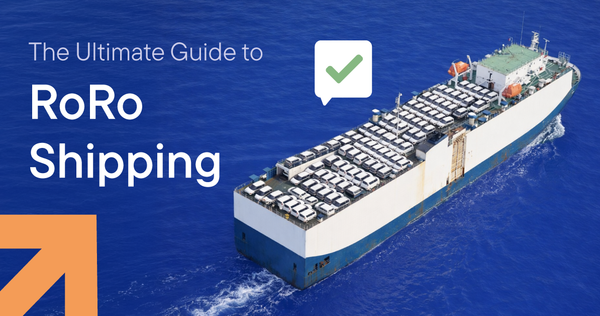Avoid ISF fines and delays with AIR 7 SEAS
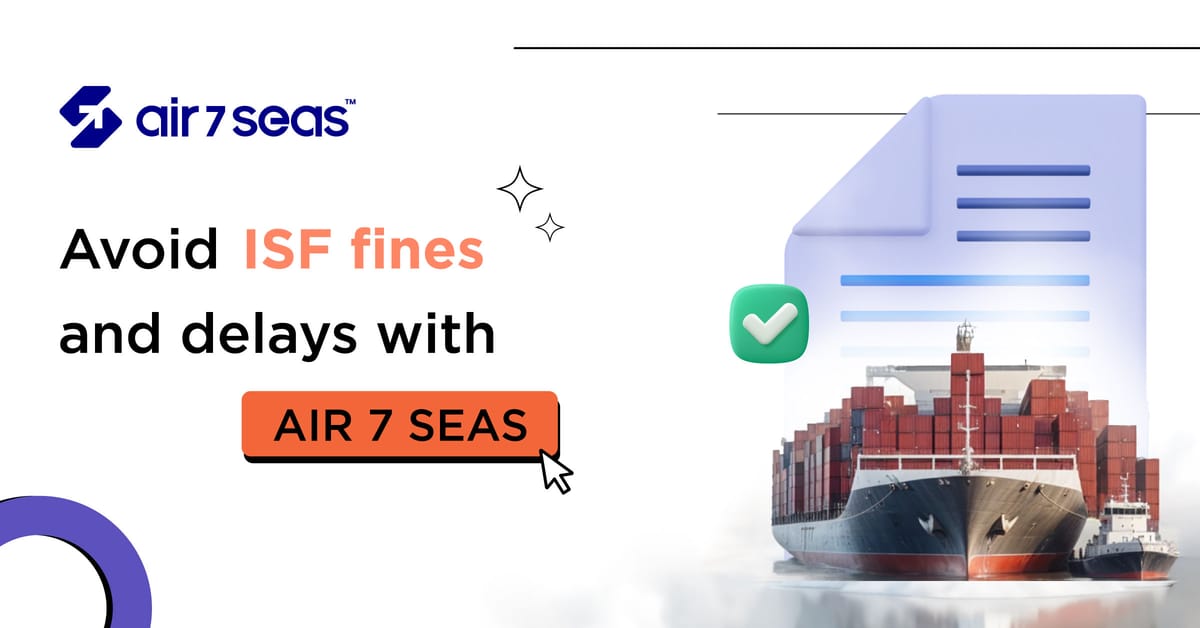
Did you know 80% of import delays are due to incorrect or late ISF(Importer security filling) filings?
Yeah, you read that right.
That's a massive number, and it means a ton of businesses are struggling with this one thing: getting their ISF right.
So, if you've ever had a shipment stuck at the port, or gotten hit with a surprise fine, you're definitely not alone.
It's a common problem, and it's a huge pain for anyone trying to bring goods into the USA.
In this blog how we can avoid ISF fines and delays, using our advanced technology.
What is ISF and Why Is It Important for Importers?
If you’re shipping goods by ocean into the USA, you can’t skip the ISF (Importer Security Filing)—also known as 10+2. It’s not optional.
It's a mandatory filing required by U.S. Customs and Border Protection (CBP) that gives them advance visibility into your shipment.
More information read
In simple terms, ISF is your cargo’s boarding pass into the U.S.
It includes key data like:
- Who’s shipping the goods
- Who’s receiving them
- What’s inside
- Where it’s coming from
- Who packed it, and more
The 24-Hour Rule: Why Timing is Everything in ISF Filing
Here’s the non-negotiable part:
- ISF must be filed at least 24 hours prior your cargo is loaded onto the vessel at the origin port.
Let’s say your container is getting loaded in Nhava Sheva, India, on Thursday at 4 PM.
That means your ISF must be filed by Wednesday 4 PM India time.
Miss that deadline, and the consequences are real. That’s why we say: timing is everything in ISF.
Without it? You’re risking delays, penalties, and even your cargo getting held at the port.
Whether you're shipping a full container or just a few pallets, CBP wants to know what’s arriving—and you’re responsible for telling them on time.
Consequences of delayed or missed ISF in a short story…
For example
A person named Maya was owning a computer manufacturing company in the USA. The company was planning to import raw computer parts from China. During this journey, they faced a crippling crisis when they forgot the crucial Importer Security Filing(ISF)
This single mistake collapsed their entire supply chain, and the consequences they faced were severe.
First, they were hit with a substantial fine of $10,000, for failing to file initially and submitting inaccurate information later.
Next, their cargo was held at the port, racking up exorbitant daily storage fees.
Their shipments were flagged for intense inspections, causing further delays.
Delays in receiving orders led to canceled orders from frustrated customers and damaging negative reviews, severely impacting their business.
The worst came when they tried to ship a new, time-sensitive order. A curt message from the freight forwarder arrived: "Do Not Load order issued by CBP." The customs effectively stranded their cargo at the origin port, and their business collapsed.
In essence, a simple missed form transformed into a financial and logistical disaster, demonstrating the critical importance of ISF compliance.
If Maya had approached Air 7 seas, how would they have helped her?
Instead of attempting to navigate the complexities of international shipping alone, Maya could have partnered with Air7Seas, a reputable international freight forwarding company in the USA, for more than 39 years.
What is the initial step?
Upon receiving Maya's shipment details, Air 7 seas experts would have promptly informed her of the mandatory Importer Security Filing (ISF) requirement.
They would have then guided her through the process and gathered the necessary information related to ISF.
Not only that, they would have given Maya a secondary option. That is their online customer portal.
Maya could have directly filed the ISF through Air7Seas' user-friendly online customer portal. This portal would have allowed her to submit the ISF swiftly and track its status in real time, alongside the shipment's progress.
This transparency and control would have eliminated the risk of missed deadlines and inaccurate filings.
Moreover, Air7Seas' expertise would have ensured that all customs regulations were adhered to, preventing any holds or inspections.
Had Maya utilized Air7Seas' services and their online portal, she would have avoided the financial penalties, cargo delays, and business disruptions that ultimately plagued her.
Conclusion
In conclusion, Maya's experience highlights the critical importance of ISF compliance for importers.
By partnering with a reliable freight forwarder like Air7Seas, and leveraging their online portal for real-time tracking and efficient filing, importers can significantly mitigate the risks associated with customs regulations.
This proactive approach not only prevents costly penalties and delays but also safeguards business operations and reputation, ensuring a smoother and more predictable import process.
Ultimately, understanding and adhering to ISF requirements is not just a regulatory obligation, but a vital component of successful international trade.
“Don't be like an imaginary Maya, Partner with Air7Seas today and enjoy seamless international trade, where your goods arrive faster than you can say 'tariff'!"


